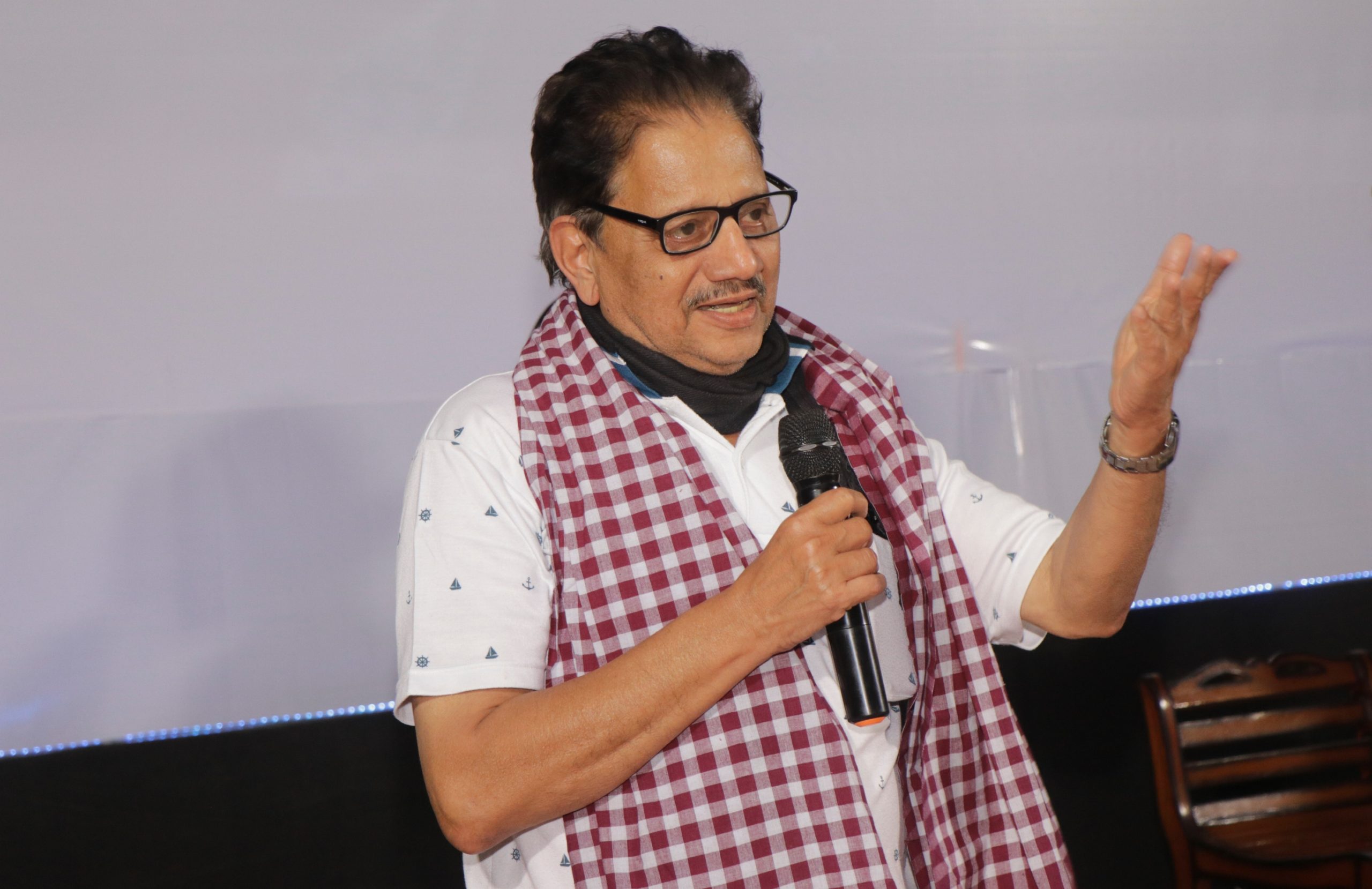
Starting his career in theatre as a playwright and director, Imteyaz Hussain has gone on to become one of the most prominent screenwriters in Hindi cinema with titles like Parinda (1989), Dil Aashna Hai (1992), Is Raat Ki Subah Nahin (1996), Ghulam-E-Musthafa (1997), Vaastav (1999), Astitva (2000), Annarth (2002), and Faisla (2005). His latest project, the Satish Kaushik directorial Kaagaz (2021), has been over a decade-and-a-half in the making.
Kaagaz is based on the life of Indian farmer and activist Lal Bihari Mritak who was officially declared dead between 1975 and 1994, and had to fight with the Indian bureaucracy for 19 years to prove that he’s alive. The film, which stars Pankaj Tripathi in the lead role as Lal Bihari, finally released on ZEE5 earlier this year. “Kaagaz was not originally intended for a web release. But because of the pandemic the cinema halls have remained closed and so it was released on an OTT platform,” reveals Hussain.
Hussain worked closely with Lal Bihari for years, constantly reworking on the drafts, as the project faced intermittent delays at different junctures ever since Kaushik acquired the rights to Lal Bihari Mritak’s story (back in 2003) and commissioned Hussain to develop the screenplay for a biopic on Mritak’s life and struggle. “I remember I had gone to pay my last respects to Harivansh Rai Bachchan Sahab when I ran into Satish Kaushik who offered me to write the screenplay. At first I didn’t take his offer seriously as in the past also we have had a few meetings regarding certain projects but then he never got back to me. But this time I found him to be quite serious about it and so I went to see him in his office,” Hussain recollects.
“There’s a famous photograph which has been in all the papers wherein Lal Bihari is sitting with his hand on his head. Satish Kaushik showed it to me in his office. He asked me to immediately start the work. So I travelled to Lal Bihari’s village in Azamgarh which is not very far off from my own native village. As a matter of fact, I was primarily chosen by him because I knew the place and understood the language,” adds Hussain.
At the time he obviously had no idea that the project would keep him occupied for the next 16-17 years of his life with different producers coming onboard before prematurely leaving the project. “Owing to the various delays, the script demanded constant rewrites and we had to do recasting for our lead character from time to time. At one point in time, Nana Patekar was supposed to play the lead and then later on Abhishek Bachchan was under consideration. But ultimately it was destined to be played by Pankaj Tripathi,” reveals Hussain.
Over the years, Hussain has proven himself to be a master of creating emotional conflicts in his scripts through his dialogs, characterizations, and scenarios. While a lot has changed about how the movies are made, Hussain believes that the essence of storytelling still remains the same. Everything boils down to one thing: emotions. “It is all about telling a story through different characters. No story can survive without the emotional content and conflict within and outside the journey of the characters of the story,” asserts Hussain.
Like a lot of the film writers in the industry, Hussain too has been getting frequent offers to write web series. But, he doesn’t see the web series format as a novelty. “I think web series are like the earlier days TV serials. These days everybody seems to be doing it. At the end of the day, it’s business. I think after some time there will be a problem of sustainability,” he opines.
As a veteran writer of films and plays with over three decades of experience, Hussain has some invaluable suggestions and reading recommendations for aspiring writers. “‘Screenplay” by Syd Field is an absolute classic. It’s like a Bible for screenwriters just like Stanislavski’s ‘An Actor Prepares’ is a Bible for actors. As old as the book is, it never really goes out of fashion. Every aspiring screenwriter ought to read the book in order to get hold of the basics and prepare for the grind of writing a screenplay,” suggests Hussain. He also recommends Joseph Campbell’s “The Hero with a Thousand Faces” as another essential textbook for writers. In the book, Campbell talks about the nature and structure of the Hero’s journey found in many of the world’s myths.
He feels that the importance of reading cannot be overemphasized, especially in today’s time and age. “The aspiring writers of today need to understand that one just can’t run away from reading. And by this I don’t just mean the textbooks but also the classics: be it works of Premchand, Manto, Tagore, or the modern writers. If you think Saleem Sahab or Javed Sahab or any other writer who has achieved success in the industry has done so without first having done all this then you are deeply mistaken. Yes, you may get lucky and taste some early success without putting in the hard work but if you want to be here for the long haul then there are no shortcuts,” sums up Hussain.
(Cover: Screenwriter Imteyaz Hussain)
The likely Rs 1,000 crore sale of the Tehri Garhwal House, former royal residence on…
On the principle of 'Sarvajan Hitaya, Sarvajan Sukhaya' -- Welfare for all, Happiness for all…
With hundreds reported missing in Delhi this year, this guide explains how families can use…
The case came to light after a 35-year-old woman from Panipat alleged that she had…
During the investigation, CCTV footage helped identify the suspects, according to Delhi Police
The launch took place during the inauguration of the Delhi Police Exhibition Hall at Connaught…